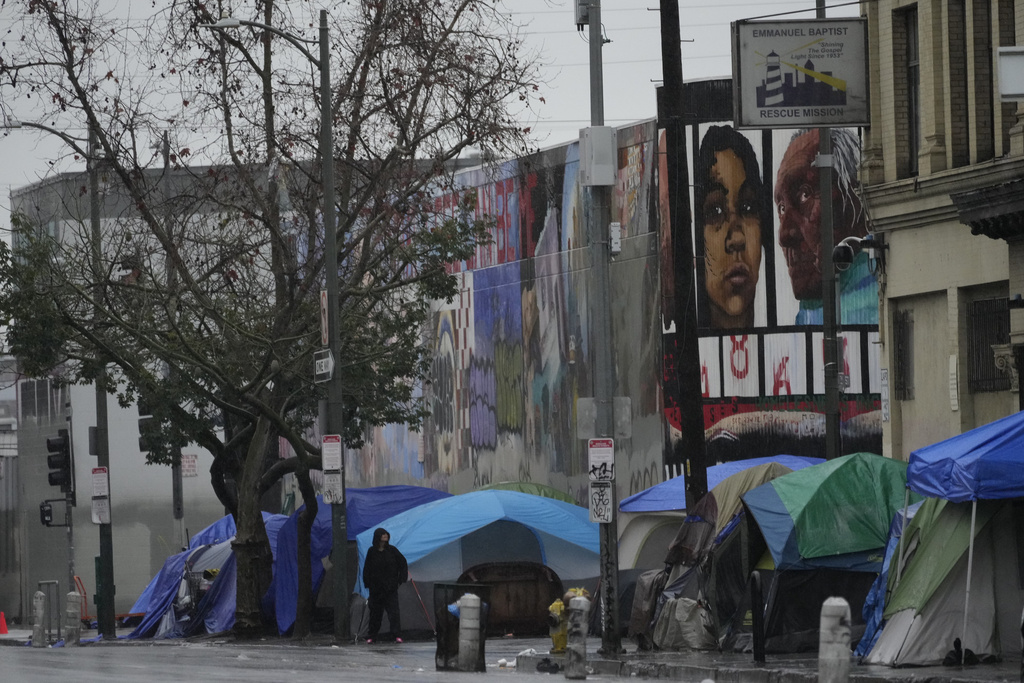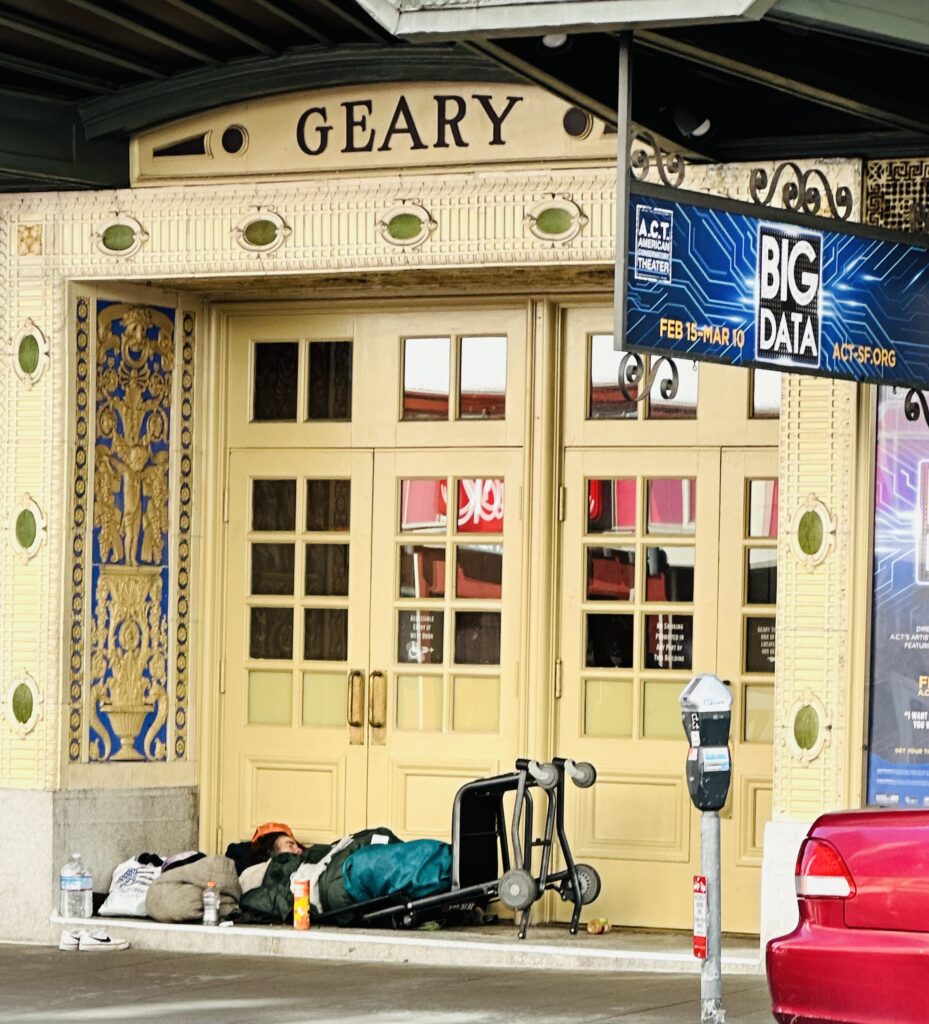
SAN FRANCISCO, California — Opponents of Gov. Gavin Newsom’s (D-CA) multibillion-dollar bond measure, pitched as vital to solving the state’s mental health and homelessness crisis, conceded Tuesday it would likely pass following days of doubt in an extremely close race.
The concession in the nail-biter contest comes a week after Proposition 1 appeared on the March 5 ballot and underscored skepticism from wary voters that throwing more money at an ever-growing problem won’t solve it. The race still hasn’t been called, but as things stand, the “yes” vote has 50.18%, with 90% of the votes counted.

“We almost took down the bear, but it looks like we will fall short,” the Proposition 1 opposition group said in a joint statement. “Today, as the principal opponents of Proposition 1, we concede that it is almost certain to pass.”
Proposition 1 will redirect an existing tax on the rich, those making more than $1 million, under the state’s Mental Health Services Act to fund services and require counties to spend 30% of the revenue on housing and helping those with severe addiction and mental illness instead of on preventive measures. It also includes a $6.4 billion bond to build more than 10,000 treatment beds.
Polls heading into Super Tuesday showed Proposition 1 would come away with an easy win.
It was a different story after the ballots were cast and the results started to trickle in. Early results showed the measure was barely hanging on with more than 2 million votes left to count.
Supporters raised millions in campaign cash and had a roster of powerful backers, including Newsom, Democratic Los Angeles Mayor Karen Bass, Democratic San Francisco Mayor London Breed, the California Hospital Association, and the California Correctional Peace Officers Association.
Newsom’s administration already has spent at least $22 billion on various programs to address the homelessness crisis, including $3.5 billion to convert rundown motels into homeless housing. The state is also shelling out $2 billion in grants to build more treatment facilities.
Proposition 1 has been touted as the final piece in Newsom’s plan to reform California’s mental health system. He has already pushed for laws that make it easier to force people with behavioral health problems into treatment.
Newsom spent the days leading up to the election campaigning from San Francisco to San Diego and urging voters to pass the measure and address one of the most difficult, and certainly one of the most visible, challenges of his governorship.

Newsom and Breed, who has watched her city struggle with homelessness and mental illness, made a joint appearance in San Francisco on the eve of the election.
“We need to stabilize people,” Newsom said. “We need to deal with the underlying reasons they’re out on the streets and sidewalks in the first place, the reasons they’re self-medicating with drug and alcohol addiction.” He later added that new investment in behavioral health housing will help “California make good on promises made decades ago.”
Breed claimed the state’s jails “should not be a place for those struggling with mental illness” but that that’s “all we have right now.”
Supporters of Proposition 1 grew their war chest to $21 million, with money coming in from law enforcement groups, major healthcare organizations, and NAMI California, a mental health advocacy group. They claimed the state’s mental health crisis demanded more investment in helping people with severe problems.
Currently, funds for the Mental Health Services Act go directly to counties across the state, and they decide how to allocate the funds. Proposition 1 changes that.
“It certainly would mean counties are going to have to rearrange how they are delivering those services to be able to meet the requirements of Prop 1,” University of California, Merced, political science professor Nathan Monroe said.

Opponents of Proposition 1 have claimed it will drastically reduce the funding counties have available for preventable services and will siphon money used for outpatient clinics and mobile crisis teams. They also feared Proposition 1 would become a slippery slope that could revert to the days when involuntary treatment was the norm. However, the lion’s share of critics have pointed to the cost and complexity of the problem and argued the state has already blown billions of dollars in taxpayer money on several initiatives to help the homeless that haven’t worked.
“It’s going to directly result in service cuts, this huge funding diversion,” said Karen Vicari, interim public policy director for Mental Health America of California, which opposes the ballot measures. “For years and years and years, the mental health system has been underfunded. It’s not a solution to move money around.”
Californians Against Proposition 1, League of Women Voters of California, and Disability Rights California also opposed the measure.
State Senate Minority Leader Brian Jones, a Republican, spoke out against it, calling it too expensive and too untested, especially as the state faces a deficit.
“This state has a dismal track record of actually taking the bonds approved by the voters and spending them on the things that they’re supposed to be spending them on. Water infrastructure, high-speed rail are just a few of the examples of where the state has dropped the ball,” Jones said.
He also faulted California Democrats for not acting sooner.
“If they had made that investment a couple years ago like we encouraged them, we wouldn’t be having this debate here today, and we would already have a year or two years’ worth of these services already happening,” he added.
While opponents of Proposition 1 said the fight over its passage is “over,” they added that “the battle ahead is to protect what we have and to regain the dignity that all people facing mental illness deserve.”
CLICK HERE TO READ MORE FROM THE WASHINGTON EXAMINER
California has the most acute homelessness epidemic in the nation, and mental health plays a huge part. More than a quarter of America’s homeless people live in California.
At last count, that was more than 181,000 and rising.






